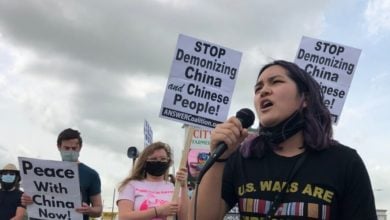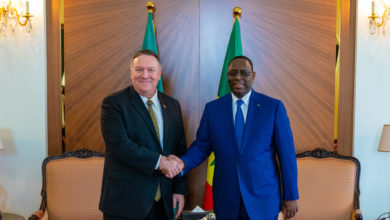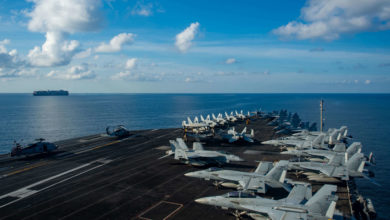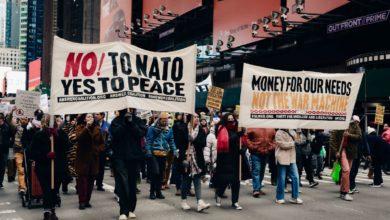A major brouhaha erupted recently when 47 Republican Senators released an “open letter” to the Iranian government, warning them that any agreement they reached with President Barack Obama could be nullified the moment a new (presumably Republican in their way of thinking) administration takes office in 2017. Ironically, after widespread condemnation of the letter from Democrats and others, Secretary of State John Kerry then admitted in testimony before Congress that any agreement would not be “legally binding,” for all intents and purposes agreeing with the Republicans.
But it really didn’t take a letter from Republican senators, or John Kerry’s testimony, to cast doubt on the value of any agreement with the United States government, which has a long history of breaking treaties and other agreements. Perhaps the most numerous, as well as the most well-known, are the many treaties which were signed with Native Americans. Not only were such treaties broken, but two Supreme Court decisions in 1902 and 1903 even held that Congress has the power to modify or terminate Native American treaties without their consent.
On the other side of the world, Vietnam is still waiting for the $3.25 billion it was promised by the U.S. during agreements that ended the Vietnam War. More recently, the U.S. has broken such treaties as the U.N. Convention Against Torture and the Chemical Weapons Convention. But with the latest news indicating that the U.S. and Iran may actually be approaching agreement, it’s worth looking more closely at agreements that relate to nuclear weapons.
In October 1994, the United States and North Korea signed the “Agreed Framework.” According to this agreement, North Korea would suspend operation of two nuclear reactors suspected of being part of a nuclear weapons program, in return for Western assistance in building two light-water nuclear reactors (which don’t produce fuel usable for nuclear weapons), as well as deliveries of fuel oil. North Korea kept its part of the agreement, but the promised reactors were never built, and eventually the fuel oil shipments stopped as well. North Korea was forced to resume its nuclear weapons development.
Then there is the treaty at the heart of negotiations with Iran—the Treaty on the Nonproliferation of Nuclear Weapon, commonly known as the NPT. The implicit guarantee of the NPT has always been a quid pro quo: Countries without nuclear weapons agree not to develop them, and in return, countries with nuclear weapons agree not to attack those countries with nuclear weapons, or even threaten to attack them with nuclear weapons. Why else would non-nuclear countries agree to the NPT were it not for this guarantee? The U.S. government has been notorious, however, for its implied threats to use nuclear weapons against one country after another (including Iran)—the “all options are on the table” posture.
And the NPT has a second important component as well. As detailed in the recent “Open letter to the people and leaders of Iran from the people of the United States” being circulated by the ANSWER (Act Now to Stop War and End Racism) Coalition, the treaty imposes an affirmative obligation on the United States and all other countries possessing nuclear weapons to act to diminish and eventually eliminate all of their existing nuclear weapons as a condition for relieving non-nuclear countries of the need to acquire such terrifying weapons. Not only is the U.S. not acting to diminish its nuclear weapons capability, it is spending hundreds of billions of dollars to do precisely the opposite—improve their capability.
One of the apparently remaining issues relates to lifting the U.N. sanctions that have been imposed on Iran—Iran wants them lifted immediately in return for the reduction of its uranium enrichment capability—while the U.S. proposes a “gradual” elimination of them. Here, it’s worth remembering some other sanctions—the ones imposed by the U.N. on Iraq starting in 1990. Those sanctions were supposed to expire once Iraq had eliminated any weapons of mass destruction in their possession. By 1995, the U.S. and U.N. knew that that had been accomplished, thanks to the defection of Saddam Hussein’s son-in-law General Hussein Kamal, who revealed in meetings with the U.N. Special Commission (UNSCOM) that he had personally been in charge of the destruction of the WMD and that none remained. The U.S. government, however, kept that information hushed up, and continued to veto the dropping of sanctions in the U.N. right through the end of the Second Iraq War in 2003.
It may or not be in Iran’s interest to sign an agreement with the United States; that’s a decision its leaders will have to make. But no one, neither the people of Iran nor the people of the United States, should be surprised if the United States doesn’t hold to its end of the bargain.






